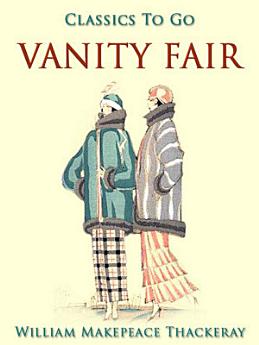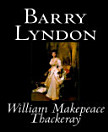Vanity Fair
Jan 2016 · Otbebookpublishing
E-Book
791
Seiten
family_home
Zulässig
info
reportBewertungen und Rezensionen werden nicht geprüft Weitere Informationen
Über dieses E-Book
Vanity Fair is an English novel by William Makepeace Thackeray which follows the lives of Becky Sharp and Emmy Sedley amid their friends and families during and after the Napoleonic Wars. It was first published as a 19-volume monthly serial from 1847 to 1848, carrying the subtitle Pen and Pencil Sketches of English Society, reflecting both its satirisation of early 19th-century British society and the many illustrations drawn by Thackeray to accompany the text. It was published as a single volume in 1848 with the subtitle A Novel without a Hero, reflecting Thackeray's interest in deconstructing his era's conventions regarding literary heroism.It is sometimes considered the "principal founder" of the Victorian domestic novel. (Wikipedia)
Autoren-Profil
William Makepeace Thackeray (1811-1863) was an English novelist and satirist whose keen observations of Victorian society earned him a prominent place in literary history. Born in Calcutta, India, Thackeray was sent to England for his education, attending prestigious institutions like Charterhouse School and Trinity College, Cambridge. However, he left Cambridge without a degree, opting instead to travel and explore the world.Thackeray's early life was marked by financial instability, a theme that would later permeate his works. He initially pursued a career in art, but his true calling emerged through his sharp, satirical writing. His most famous work, "Vanity Fair," introduced readers to the unforgettable character of Becky Sharp and offered a scathing critique of social climbing and moral hypocrisy.Thackeray's influence extended beyond his literary achievements. He was a contemporary and sometimes rival of Charles Dickens, and their differing styles—Thackeray's biting satire versus Dickens's sentimentalism—sparked much debate among readers and critics. Thackeray's works often challenged the romanticized notions of heroism and virtue prevalent in Victorian literature, presenting instead a more realistic and often cynical view of human nature.Despite his success, Thackeray's personal life was fraught with challenges, including a troubled marriage and the early deaths of his parents. These experiences undoubtedly shaped his worldview and his writing. His legacy endures as a pioneer of the realistic novel, and his incisive social commentary continues to resonate with modern readers who appreciate his wit and unflinching honesty.
Dieses E-Book bewerten
Deine Meinung ist gefragt!
Informationen zum Lesen
Smartphones und Tablets
Nachdem du die Google Play Bücher App für Android und iPad/iPhone installiert hast, wird diese automatisch mit deinem Konto synchronisiert, sodass du auch unterwegs online und offline lesen kannst.
Laptops und Computer
Im Webbrowser auf deinem Computer kannst du dir Hörbucher anhören, die du bei Google Play gekauft hast.
E-Reader und andere Geräte
Wenn du Bücher auf E-Ink-Geräten lesen möchtest, beispielsweise auf einem Kobo eReader, lade eine Datei herunter und übertrage sie auf dein Gerät. Eine ausführliche Anleitung zum Übertragen der Dateien auf unterstützte E-Reader findest du in der Hilfe.







